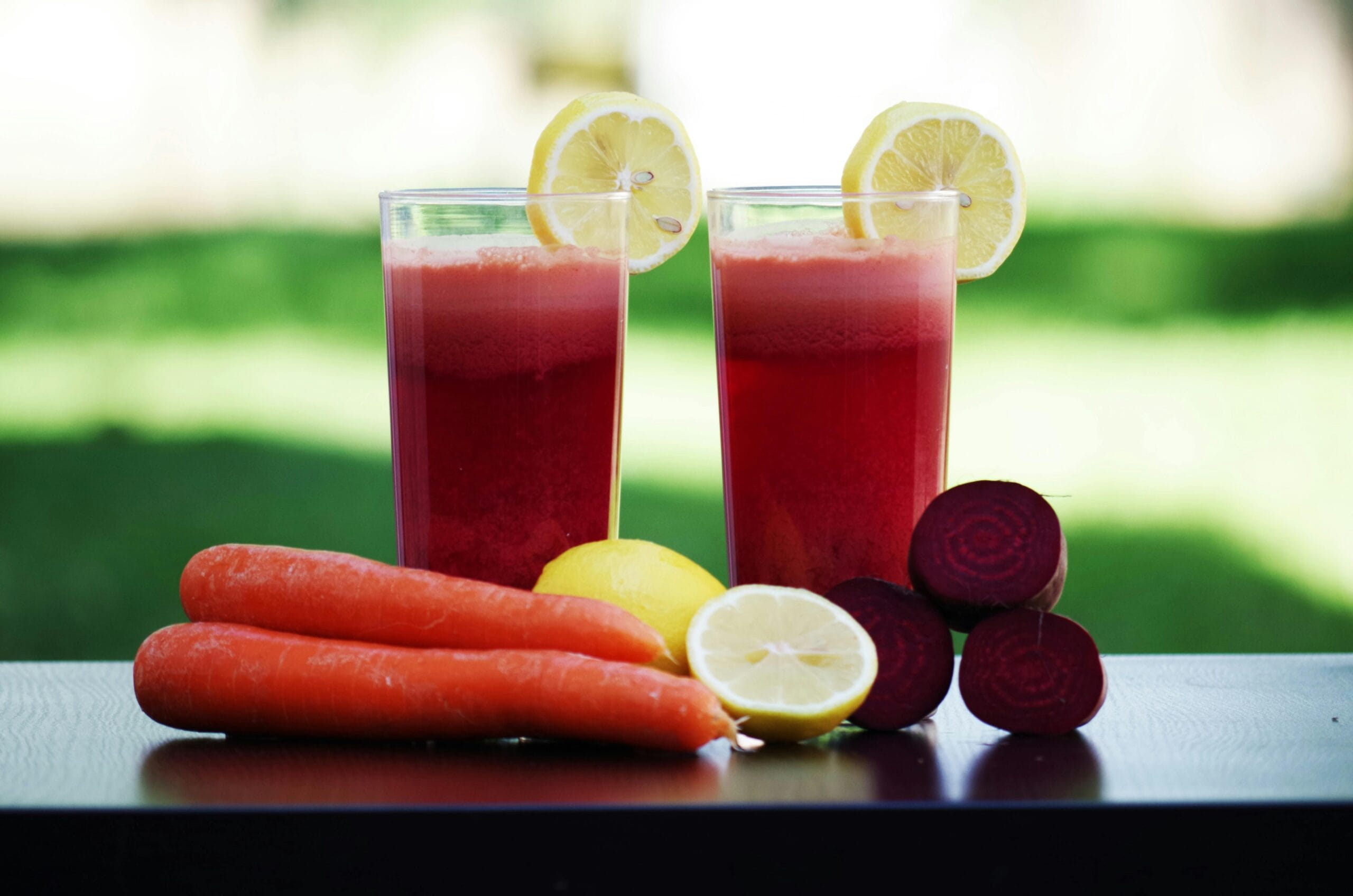In the ever-evolving landscape of health and wellness, the quest for effective strategies to combat cancer has led many to explore alternative approaches, one of which is the incorporation of anti-cancer smoothies into daily routines. Beyond just a tasty treat, these nutrient-packed concoctions harness the power of natural ingredients to potentially bolster the body’s defenses against cancer. In this comprehensive guide, we delve into the science behind anti cancer smoothie, uncovering their potential benefits supported by statistics and research.
The Rise of Anti Cancer Smoothie :

As cancer incidence rates continue to rise globally, more people are seeking preventive measures and complementary therapies to support their overall health. Among the growing trends is the emergence of anti-cancer smoothies. These nutrient-dense drinks offer a convenient and tasty way to boost the body with essential vitamins, minerals, and antioxidants that may help combat cancerous cells. Packed with ingredients known for their cancer-fighting properties, anti-cancer smoothies are becoming a staple for those looking to take proactive steps toward their health.
Statistics on Cancer Incidence:
Before delving into the specifics of anti-cancer smoothies, let’s take a glance at some pertinent statistics:
- According to the World Health Organization (WHO), cancer is the second leading cause of death globally, responsible for an estimated 10 million deaths in 2020 alone.
- The American Cancer Society estimates that in 2021, there were approximately 1.9 million new cancer cases diagnosed in the United States.
- Certain lifestyle factors, including diet, play a significant role in cancer development. It’s estimated that around 30% to 35% of cancer cases are linked to diet, according to the National Cancer Institute.
The Science Behind Anti Cancer Smoothie :
Anti-cancer smoothies are typically crafted from a medley of fruits, vegetables, herbs, and spices, each chosen for their potent anti-cancer properties. Here’s a breakdown of key ingredients commonly found in these nutritious blends and their purported benefits:
- Berries: Berries such as blueberries, strawberries, and raspberries are not just delicious—they’re also packed with potent antioxidants like anthocyanins, ellagic acid, and vitamin C, which play a crucial role in cancer prevention. The high levels of anthocyanins give berries their vibrant colors and are known for their ability to neutralize harmful free radicals in the body. Free radicals are unstable molecules that can damage cells, leading to inflammation and potentially contributing to cancer development. By scavenging these free radicals, anthocyanins help protect cellular DNA from damage, a key factor in reducing cancer risk.
- Leafy Greens: Leafy greens such as spinach, kale, and Swiss chard are nutritional powerhouses that offer a wide array of health benefits, particularly in the context of cancer prevention. These vegetables are rich in chlorophyll, a green pigment that helps plants convert sunlight into energy. Chlorophyll is known for its detoxifying properties, as it can bind to potential carcinogens in the digestive tract and help prevent them from being absorbed into the body. This detoxification process is vital in reducing the risk of cancer, particularly colorectal cancer.
- Cruciferous Vegetables: Cruciferous vegetables like broccoli, cauliflower, and Brussels sprouts are nutritional powerhouses, particularly noted for their potential cancer-fighting properties. These vegetables contain glucosinolates, sulfur-containing compounds that are broken down into biologically active compounds like indoles and isothiocyanates during digestion. According to the American Institute for Cancer Research (AICR), these compounds have been shown to help detoxify carcinogens, inhibit the growth of cancer cells, and promote apoptosis, the process of programmed cell death that eliminates damaged or dangerous cells. Regular consumption of cruciferous vegetables is associated with a reduced risk of several cancers, including lung, colorectal, and stomach cancers.
- Turmeric: Turmeric, a golden-yellow spice commonly used in Indian cuisine, is renowned for its medicinal properties, largely due to its active compound, curcumin. Curcumin is a potent antioxidant and anti-inflammatory agent, making it a focal point in cancer research. Studies suggest that curcumin may help suppress the proliferation of cancer cells and induce apoptosis in various cancer types, including breast, prostate, pancreatic, and colorectal cancers. Moreover, curcumin has been shown to interfere with multiple cellular signaling pathways involved in cancer development, such as those related to inflammation, oxidative stress, and cell cycle regulation. Incorporating turmeric into your diet, especially when combined with black pepper (which enhances curcumin absorption), can be a valuable addition to an anti-cancer regimen.
- Green Tea: Green tea, a popular beverage in many cultures, is rich in polyphenols, particularly catechins like epigallocatechin gallate (EGCG), which have been extensively studied for their anti-cancer effects. Epidemiological studies have linked regular green tea consumption with a reduced risk of various cancers, including breast, prostate, and colorectal cancers. The catechins in green tea are believed to work through several mechanisms, such as protecting cells from DNA damage, reducing inflammation, and inhibiting tumor growth. Additionally, green tea has been shown to enhance the effectiveness of certain cancer treatments and may help prevent the recurrence of cancer. Sipping on green tea daily not only provides a soothing experience but also delivers a significant dose of cancer-fighting compounds.
Potential Benefits of Anti Cancer Smoothie :
While research on the specific effects of anti-cancer smoothies is still emerging, anecdotal evidence and preliminary studies highlight several promising benefits:
- Immune Support: Anti-cancer smoothies are often rich in vitamins, minerals, and antioxidants, which can enhance immune function. These nutrients help the body defend itself against the formation and spread of cancerous cells.
- Inflammation Reduction: Chronic inflammation is a known risk factor in cancer development and progression. By including anti-inflammatory ingredients like berries, turmeric, and ginger in smoothies, individuals may reduce this risk and promote overall health.
- Detoxification Support: Ingredients like leafy greens, cruciferous vegetables, and citrus fruits found in anti-cancer smoothies support the body’s natural detoxification processes, helping to eliminate carcinogens and toxins.
- Hydration and Nutrient Absorption: Smoothies are a convenient way to stay hydrated while delivering a concentrated dose of essential nutrients. The blending process can make these nutrients easier for the body to absorb compared to whole foods, ensuring that vital compounds are utilized effectively.
Anti-cancer smoothies represent a flavorful and potentially beneficial addition to a cancer-preventive or adjunctive regimen. While they’re not a panacea, their nutrient-rich ingredients and purported anti-cancer properties make them a worthy consideration for those seeking holistic approaches to health and wellness. By harnessing the power of nature’s bounty, individuals can take proactive steps towards reducing their cancer risk and optimizing overall well-being. Cheers to health and vitality with every sip of an anti-cancer smoothie!





